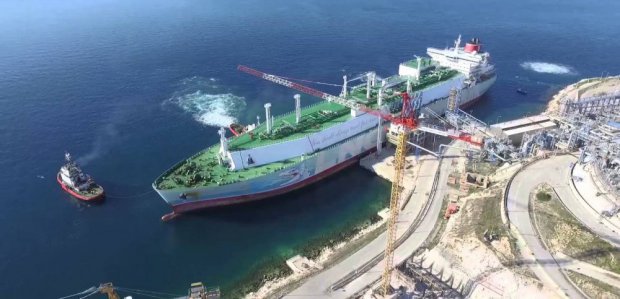A delay in the expected arrival of an extraordinary Algerian LNG shipment, which was scheduled to arrive in Greece this Saturday, has raised concerns among local energy authorities, including RAE, the Regulatory Authority for Energy, all coordinating their efforts to combat a new European energy crisis anticipated over the next few days as a result of sub-zero temperatures that have been forecast around the continent.
The delay, caused as the Algerian port at which the LNG order was expected to be loaded remained closed today, means that LNG reserves at the Greek terminal on Revythoussa, an islet just off Athens, will run out on Saturday.
This unexpected LNG shortage will require local authorities to resort to alternatives. The electricity output of Greece’s renewable energy facilities, especially wind farms, will be pivotal. Windy conditions are being hoped for by authorities.
The country’s energy crisis management team is expected to convene today and assess the situation as a result of the delayed Algerian LNG delivery. Emergency measures may need to be taken.
Greece’s energy warning system has remained elevated at Level 2 Alert as local authorities are bracing for heightened pressure on the grid between January 22 and 30.
The grid is operating at full scale to meet local requirements, prompting swift consumption of LNG amounts shipped in to the Revythoussa station, Greece’s only LNG terminal at present.





